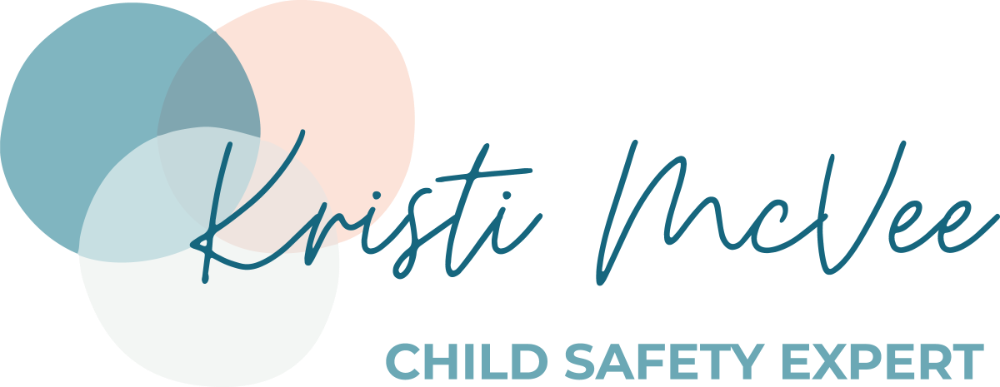How to call out inappropriate behaviour of adults around kids
Sep 20, 2024
Have you ever replayed a moment where you wish you had spoken up and said something but at the time you didn’t know what to say or you were too shocked to say something?
It’s not easy to call out inappropriate behaviours, especially when it comes to other adults or family members, but when it comes to inappropriate behaviours around children it is extremely necessary.
Putting it plainly, it is our job to keep ALL kids safe.
It does not matter if the child is our own, a niece or nephew, a friend’s child, a child in a school yard or a stranger’s child. The only person standing between potential abuse and safety is us!
Calling out inappropriate behaviours of adults could be the difference between an adult taking advantage of the situation, believing the child has no supportive adults or people around them versus knowing the child has support and someone watching over them. This in and of itself is a HUGE deterrent to predators.
I know it can be highly scary and anxiety inducing to call out adults, especially when you struggle to stand up for yourself, but remember, kids don’t have the power to do so. Because of this, we need to put our own anxiety and fears aside to ensure we say what needs to be said.
Adults can be inappropriate for a number of reasons and it’s not necessarily because they do it intentionally, however, unless we speak up and say something, we can’t always ascertain whether the intention behind the actions was nefarious or just a lack of awareness or ignorance.
Some of the reasons adults are inappropriate are:
- They are grooming the child for abuse
- The adult is immature or has a lack of awareness of their behaviours
- The adult has been conditioned to think the behaviour is normal or appropriate
- The adult is choosing to be selfish or wilfully ignorant of the people around them
- They have a learning disability such as autism/ADHD
- They have a lack of responsibility or accountability
Inappropriate behaviours of adults around children for whatever reasons is NEVER acceptable.
Some inappropriate behaviours I have seen in my time in the police included but were not limited to:
- Talking to children about inappropriate topics which were not age-appropriate
- Oversharing adult information
- Allowing them to view adult or mature content
- Not respecting or having boundaries around their bodily autonomy such as tickling them when asked to stop
- Failing to consider a child’s needs and emotional development with an attitude of ‘it happened to me when I was a kid and I turned out ok’
- Showering, dressing or undressing in the presence of children when children are no longer wanting to or not giving them a choice
- A lack of autonomy or consent around sleeping arrangements, touching, private conversations etc.
Some adults are just really ‘inconsiderate’ and have a lack of emotional intelligence which makes them do these types of things without really thinking them through. However, some adults do these things because they are ‘grooming’ children and adults around them.
Calling out these behaviours and bringing attention to them is SUPER important.
Here are statements you can use to call out behaviours and help bring awareness to them. Not only to help the adult know that these types of behaviours are not acceptable, but also to help the child start to identify that these types of behaviours are not ok by the adults around them and that you are a ‘safe’ adult if they need you.
Soft approach
- Hey, I’m not sure if you were aware but what you just did {insert behaviour} isn’t appropriate/age appropriate for {name of child} and I would appreciate it if you didn’t do that {behaviour} again. I realise you might not have done it intentionally but please ensure you don’t do that again.
- Hey, you do realise that what you just said/did was inappropriate around a kid? I’m sure you didn’t do it on purpose but please don’t do that again.
Hard approach
- What you just did is highly inappropriate behaviour for an adult around a child. I would like to hope you didn’t do that {behaviour} around {insert child’s name} because you have any ill intent or are trying to groom them, but that’s what it looked like to me. Do it again and I’ll be forced to {insert action ie. report you to our supervisor, remove your access to the child etc.}. I’ll be talking to {child’s name} about this to ensure they know that what you did was an unsafe behaviour and to let me know if this happens again.
NOTE:
The reaction of the person who you are calling out will tell you whether they were intentionally doing that behaviour or they were unaware of their behaviour around a child.
A person who is genuinely unaware will most likely be apologetic and show some form of remorse and concern for the child. Someone who is aware will most likely be reactive, defensive and dismissive.
I can’t not reiterate how vitally important it is as adults to call out inappropriate behaviours and how role modelling calling out these behaviours also helps other adults feel confident to do the same.
The standard you walk past is the standard you accept!
Don’t allow adults to behave in a way that risks our kids and call out anyone around you. It could actually be the difference between a child being at risk of abuse or not.
Kristi x


